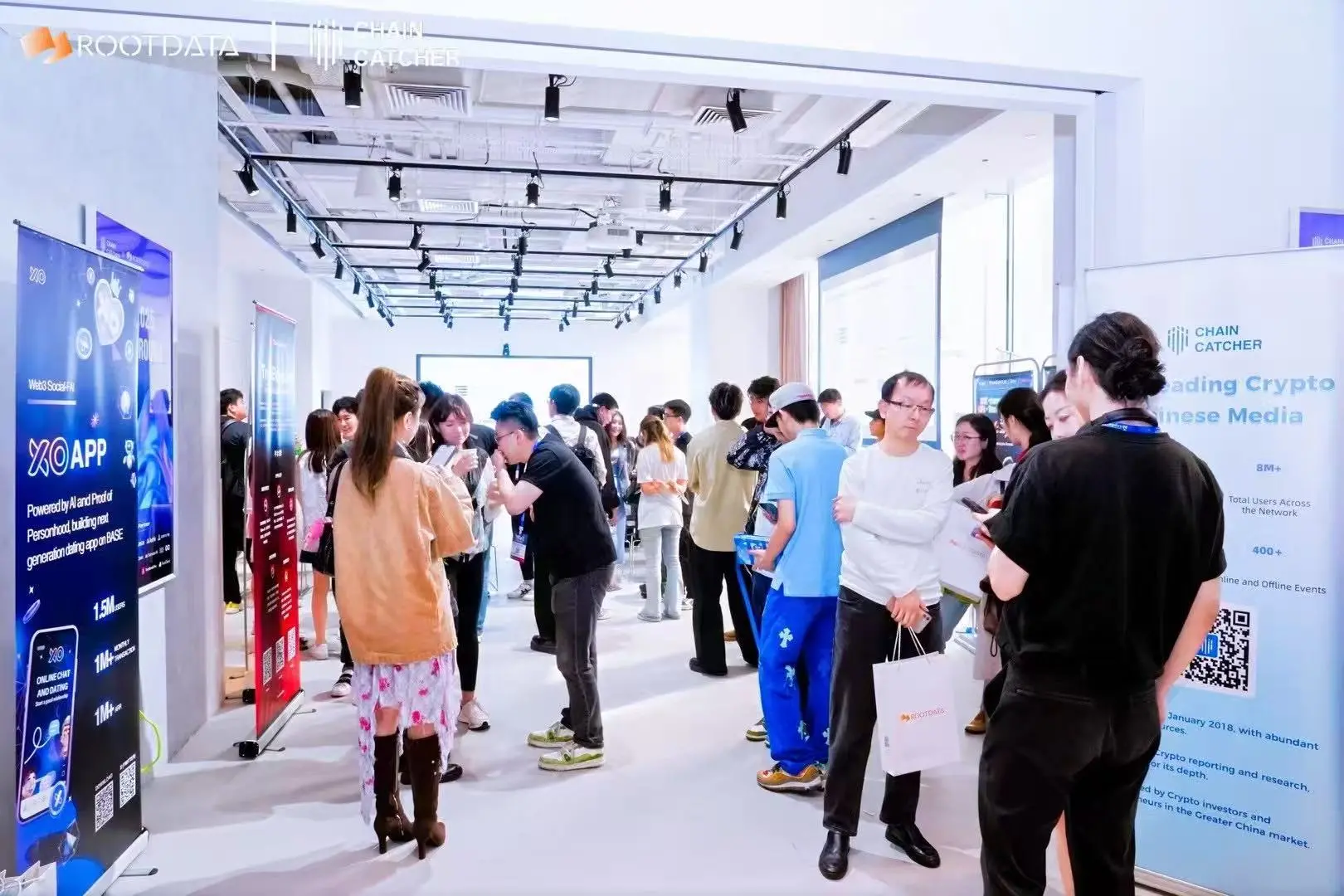BM and AC: The Dual Predicament of Continuous Issuers
This article is an original piece by Chain Catcher, authored by Hu Tao.
Continuous token issuers are not uncommon in the blockchain industry, with BM (Daniel Larimer) and AC being the two most well-known figures.
Since entering the blockchain industry in 2013, BM has led the development of well-known blockchain projects such as Bitshares, Steem, and EOS, all of which have had their token market values enter the global top 20.
Since early 2020, AC has launched numerous DeFi projects including yearn.finance, Keep3r, StableCredit, and Deriswap, while also playing important roles in DeFi projects like Cream and Hegic, with YFI becoming a top 30 global market cap project just months after its issuance.
However, despite both being continuous token issuers, the external evaluations and circumstances of the two are starkly different, presenting a polarized phenomenon. This was especially evident after BM announced his resignation from block.one yesterday, as he found himself in a situation of almost universal condemnation, with various criticisms pouring in, such as "fraudster" and "traitor."
In contrast, AC's reputation in the industry is much more positive. Although he has launched more projects than BM, he is still regarded as the person of the year in the DeFi industry for 2020, with continuous accolades like "deified," "cheat mode," and "Lego master."
So, why do these two continuous token issuers have such different public opinions?
1. BM's Story
BM entered the blockchain industry due to his pursuit of free market solutions. He believes that currency is the root of government power, and a free market requires a form of funding that is not backed by physical property. After encountering Bitcoin in 2009, he became active in the Bitcoin developer community. In 2013, after many Bitcoin exchanges faced government intervention and shutdowns, BM decided to create a decentralized exchange called Bitshare and developed stablecoins like bitUSD, bitCNY, and bitEUR pegged to the US dollar and other currencies.
However, the greatest significance of the Bitshare project lies in BM's creation of the Delegated Proof of Stake (DPOS) mechanism, which is widely used by projects like EOS and Tron today, allowing Bitshares to achieve a TPS far exceeding that of Bitcoin at the time.
In a Bitshares council vote in November 2015, a proposal to lower transaction fees received more support, defeating BM's opposing stance by 7 to 4. This event marked the beginning of the Bitshares community's complete control over system governance, leading to BM's marginalization and subsequent announcement of his departure from BitShares.
The following year, BM founded the blockchain-based social media platform Steem, attempting to establish a fair accounting system that consistently reflects everyone's contributions, incentivizing community members to create and share content through token rewards, addressing the issue of unreasonable profit distribution in traditional social platforms.
However, perhaps seeing the immense potential brought by Vitalik Buterin's creation of Ethereum to the public chain industry, BM announced his resignation from Steem in 2017 and began working on EOS. The project garnered significant attention in the blockchain industry when it launched its mainnet in 2018, but it later faced criticism for excessive centralization and limited actual development.
Thus, it is not difficult to understand BM's choice to leave again. However, according to BM's explanation, the main reason for his departure was that projects like EOS would be targeted by regulatory agencies, leading to a complete loss of privacy. "And I do not want my innovations to be restricted by government regulators. We who want to create tools to return power to the people need to look elsewhere."
2. AC's Story
Born in South Africa, AC does not come from a technical background; he studied law at Stellenbosch University in South Africa and self-taught computer courses out of interest. After managing to complete his courses early, he coincidentally filled a vacancy left by a lecturer in the "Lecturer" team, thus seizing the opportunity to become a course instructor. It was from this point that he gradually stepped into the field of computer science.
After entering the blockchain industry, AC was deeply involved in blockchain projects such as Wanchain, BitDiem, Aggero, FUSION, and Fantom, serving as a technical consultant and analyst at Kosmos Capital and Lemniscap, and even starting a column to review multiple blockchain projects, accumulating a certain fan base in the process.
In early 2020, AC converted his investments in Bitcoin and Ethereum into stablecoins and began focusing his research on how to choose the lending protocols with the highest returns. This led to the birth of the DeFi aggregation protocol yearn.finance.
By July of that year, yearn.finance launched the YFI token with no pre-mining mechanism and the yVaults mechanism for automatic yield farming, significantly boosting its momentum and further solidifying its leading position in the DeFi space.
However, after that, AC's main focus shifted away from the yearn project, as he successively launched or deeply participated in several DeFi projects, such as the decentralized task outsourcing platform Keep3R, the decentralized lending protocol StableCredit, the decentralized insurance protocol Cover, and the integrated trading, options, and lending platform Deriswap, among others.
In November, AC initiated a wave of consolidation and mergers in the DeFi market, announcing the integration of projects like Akropolis, Sushiswap, and Cream with the yearn project, where the projects would collaborate on development and jointly formulate strategies, opening up greater imaginative space for the DeFi market.
"Like a gamer, he wants to unlock new levels. Like an artist, he wants to abandon creation," Coindesk commented on AC.
3. Why the Different Evaluations of the Two
Returning to the question at the beginning of the article, Chain Catcher believes that this can be summarized into three reasons.
First, BM completely leaves the original project every time he starts a new one, no longer participating in the operation and decision-making of the original project. Although the projects were already equipped with well-established governance mechanisms when BM left, his departure undoubtedly represents a loss for the project, leading to dissatisfaction among the original project's community users.
In contrast, AC does not leave the original project community every time he starts a new project; his series of DeFi protocol integration actions launched in November last year serve as the best example, as he continues to focus on promoting the original project's development, presenting a responsible attitude to the outside world.
Second, all of BM's projects are in the public chain track, which is currently dominated by Ethereum and its ecosystem, leading to poor practicality and significant external skepticism about their prospects.
At the same time, BM's new projects compete with the original projects, with a high degree of overlap in the track. BM even publicly stated that EOS's Voice would achieve everything that STEEM originally wanted to accomplish, which undoubtedly has a negative impact on the original project community.
In contrast, all of AC's projects are in the DeFi track, which is currently a hot trend, and each has its own positioning, with strong complementarity and practicality. Concepts like no pre-mining tokens, aggregators, and mergers and acquisitions have clear exploratory nature and positive significance for the industry, leading to higher current recognition from the outside world.
Although BM's proposed DPOS mechanism also has significant influence and exploratory nature in the blockchain industry, its evaluation has long been polarized and has not received mainstream recognition.
Third, in terms of token prices, the prices of BM's projects have dropped significantly, over 90% from their early stages, leading to long-standing grievances among token holders, especially with recent reports revealing that block.one holds over 200,000 BTC, raising significant suspicions of "scamming."
In contrast, the series of tokens issued by AC are performing much better in terms of price, with many even at historical highs, resulting in high enthusiasm and confidence among community members, with the wealth effect being particularly evident.
Given these reasons, it is understandable that BM's announcement of his resignation as CTO of Block.one has faced widespread criticism, as the poor performance of token prices, limited practicality of projects, and a long absence from mainstream visibility have resulted in his actual contributions falling far short of public expectations.
From BM's own logic, choosing to leave old projects and create new ones is a rational choice, and in the blockchain industry that emphasizes decentralized governance, it is not without merit, especially since the original projects had already formed relatively mature community governance mechanisms and did not rely on the founder for operation. At the same time, the development status of the projects did not meet BM's expectations, which may be difficult for the ambitious BM to accept.
However, in the cryptocurrency world, poor token prices may be the original sin of project parties and founders. Perhaps in a few years, as most of AC's exploratory experiments fade into silence and disappear, and token prices also decline, his reputation may follow in BM's footsteps. In fact, due to some security incidents that have occurred in many projects AC is involved in, similar voices have already begun to ferment on a small scale.
Behind this issue reflects that the boundary between positive exploratory projects and "harvesting" projects in the industry remains relatively vague, and the fundamental issue is that investors need to be responsible for every investment decision, as even the most dazzling teams in this industry of rampant investment and restlessness cannot be deemed reliable.
Reference article: "AC's Path to Deification! Who Will Be the Next DeFi Landscape?" ------ Bitouq











